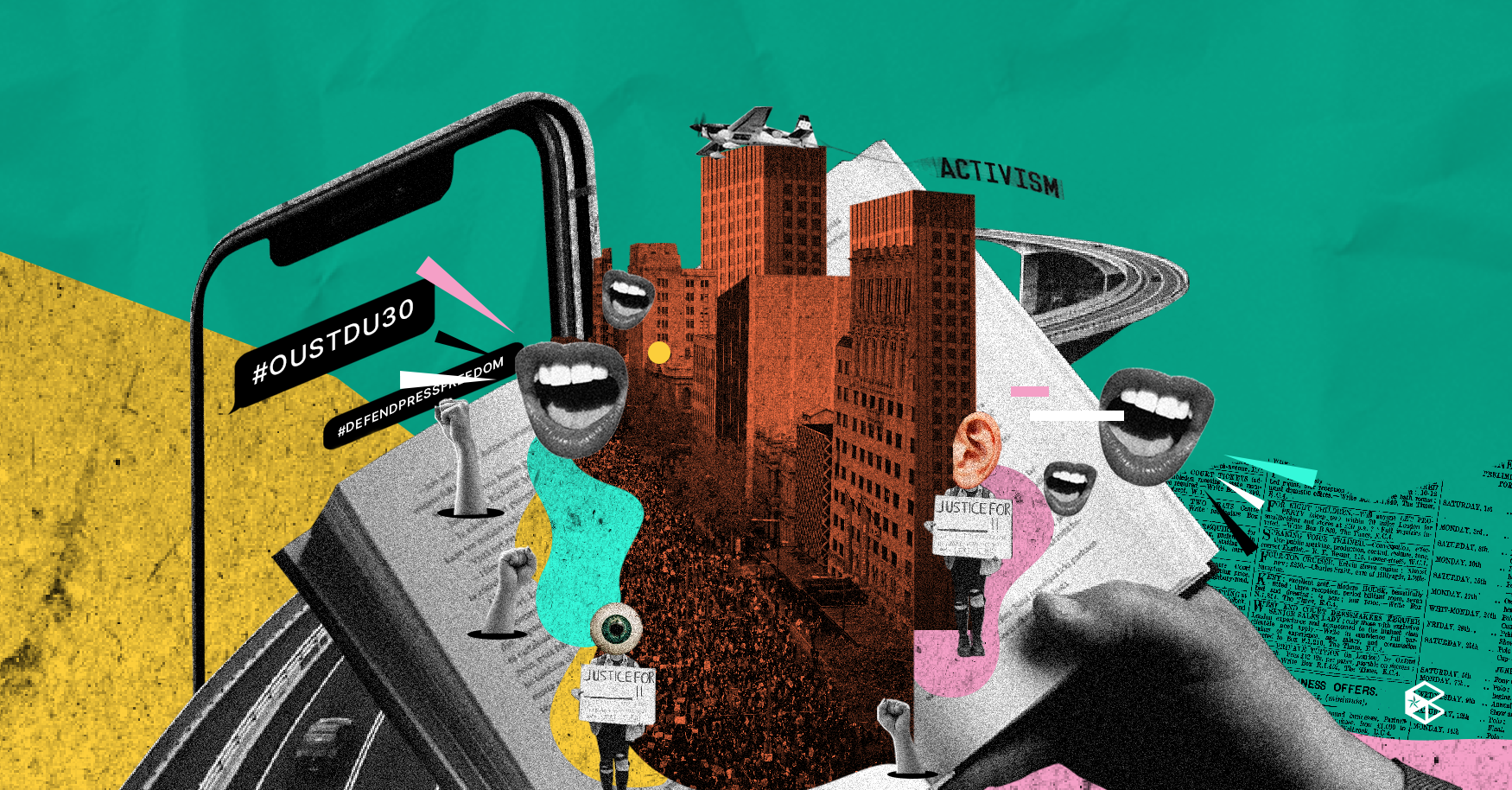Typically associated with holding rallies and taking a physical stand, the activism of today has morphed and evolved to encompass online spaces, brought about by the physical restrictions of the COVID-19 pandemic. Having evolved from Philippine revolutionary literature to online hashtag activism, it’s with this language that the fight against repression and oppression continues.
In Philippine history, languages and writing systems used in communication have evolved from pre-colonial scripts and dialects to the use of the Spanish and English languages. Notably, Spanish had a large linguistic impact on Philippine activism, being the language used during the 1898 Philippine Revolution and in the first Philippine Constitution.
Today, there are over 130 languages spoken across the archipelago, with both Filipino and English being declared as official languages in the 1987 Constitution. However, despite Filipino being our lingua franca, Tagalog and Cebuano are the most widely-spoken dialects in the country, with a longstanding rivalry between the two dialects. In Br. Andrew Gonzalez, FSC.’s “Cebuano and Tagalog; Ethnic Rivalry Redivivus,” Cebu’s resistance to executive order No.335, which mandates the use of Filipino in official all communications, was chronicled; detailing the steps taken by Cebuano speakers and local governments to rally for the use of Cebuano over the Tagalog-based Filipino, as the country’s national language.
“The pen is mightier than the sword”
Throughout its history, activism through discourse and literature played a significant role in the enactment of change within the country. Works such as Dr. Jose Rizal’s “Noli Me Tangere” and “El Filibusterismo" from the Spanish regime and Stevan Javellana’s “Without Seeing the Dawn” during World War II used fiction to call out malpractice and systemic oppression.
Furthermore, the dawn of late dictator Ferdinand Marcos’ martial law saw Filipino writers rising in protest一with stories and poetry created to bring injustice to light. One example is Pete Lacaba’s “Days of Disquiet, Nights of Rage: The First Quarter Storm and Other Related Events,” a compilation of on-the-spot reports that delves into the crucial role of student leaders during the regime.
On a scale from conyo to macro
With a rich collection of literature in both English and Filipino, the country’s ingrained culture of bilingualism is further solidified. Surely, the Philippine language has further evolved in the form of code-switching or the shift from one language to another.
According to Dr. Ma. Lourdes S. Bautista, a retired English and Linguistics professor, there are two types of code-switching. Deficiency-driven code-switching occurs when a person's inability to communicate in one language forces them to switch to the other, while proficiency-driven code-switching occurs when a person can effectively switch from one language to the other.
People code-switch because of negotiating one’s position, according to American linguist Carol Myers-Scotton. Therefore, using Taglish can be viewed as adapting to the educational background and level of understanding between the speaker and the audience.
Meanwhile, Dr. Ruanni F. Tupas, a Filipino linguist, claimed that nationalist sentiments are expressed in Filipino, becoming a sign of pride and identity and resisting multinational or nationalist hegemony.
Language is not only a source of nationalism, but a means to connect on a natural, cultural level. The evolution of Filipino slang has grown massively since the rise of social media. The political word-wars between government supporters and non-supporters have been particularly intense, with notable examples being the use of “yellowtard” versus “dutertard," coined during the 2016 presidential elections.
The weight of words
The pandemic has caused the language of activism in the Philippines to evolve into its newest form—online activism. Online symposiums, webinars, and social media platforms have become avenues for individuals to speak out against injustices within the system. Hashtags and calls to action that are frequently used online have also contributed to the shaping of online activism.
With resounding echoes of “#LigtasNaBalikEskwela” and “#NoStudentLeftBehind” at the start of online-based schooling, today’s young activists have used social media to let their voices be heard.
While it could be argued that online activism takes less effort and makes less of an impact, a 2020 journal by lecturer and researcher Hedy Greijdanus and company titled “The psychology of online activism and social movements: relations between online and offline collective action” begs to differ; stating that netizens are continuously proving the opposite.
A prime example would be “LugawOne,” a feeding program that Vice President Leni Robredo’s camp has initiated to flip the negativity of the phrase “Leni Lugaw”—coined by Robredo’s cynics as a taunt during the 2016 elections—on its head.
The language of activism does not need to be poetic nor overcomplicated, but what it does is make an impact. Today, this language comes in many forms such as slang terms found on tweets, hashtags, and even short form video content on TikTok.
Language evolves with its people, and it’s through this language that the very fabric of society is woven一stitch by stitch.


